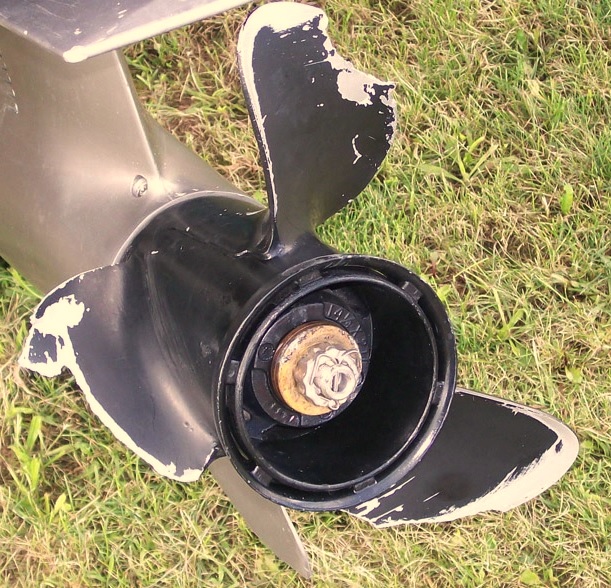Keeping your RPM within the engine manufacturer's suggested wide-open-throttle (WOT) range is a key component in maintaining peak performance of your motor for as many years as possible. While there can be a variety of over-revving causes, the simplest and most common reasons will typically be propeller related, as not everything that fits the motor will work for the boat-motor set up, and propellers naturally lose their bite with the wear and tear accompanying standard use.
For used propellers, there are typically 3 types of damage that can cause over-revving. The amount of over-revving and how quickly it changes from being within the manufacturers WOT ranges to being over can help clue you in to the problem.
 1) Sudden & significant increase in RPM and full (or mostly full) loss of power is often caused by a spun hub, where the propeller itself is no longer moving at the full pace of the prop shaft.
Depending on the propeller and your local resources, you may be able to have a new hub re-pressed, but typically you'll be in the market for a new propeller if it's not under warranty.
1) Sudden & significant increase in RPM and full (or mostly full) loss of power is often caused by a spun hub, where the propeller itself is no longer moving at the full pace of the prop shaft.
Depending on the propeller and your local resources, you may be able to have a new hub re-pressed, but typically you'll be in the market for a new propeller if it's not under warranty.
2) Sudden & significant increase in RPM and partial loss of power accompanied by heavy vibrations is usually the symptom of having done significant damage to your prop blades.
A large "THUNK" should also help clue you in.
In this case, you will be looking for a new propeller; a prop repair shop likely won't cut it.
3) Gradual increase in RPM (over months/years) is a common symptom of light to moderate damage done to the prop via dings and nicks usually caused by debris, sand bars, or rocks,
and are the reason why most people use their aluminum props for less than 3 years.
Often times you can milk the life of the prop by getting the edges resurfaced by a prop repair shop, though resurfacing costs should be compared against buying new.
If you're over-revving on a brand new propeller, you're likely dealing with a prop with specifications that are not complementive of your motor, such as having too low of a pitch (not enough resistance = over-revving) or too small of a diameter (too much slip = over-revving). This can be a costly mistake since most retailers will not accept returns for props that have been run on the water, making it imperative that you pick the right propeller from the get-go. Alternatively, you could have a factory defect, which is typically a hub related issues, in which case you should contact the retailer or manufacturer for a return or warranty claim.








